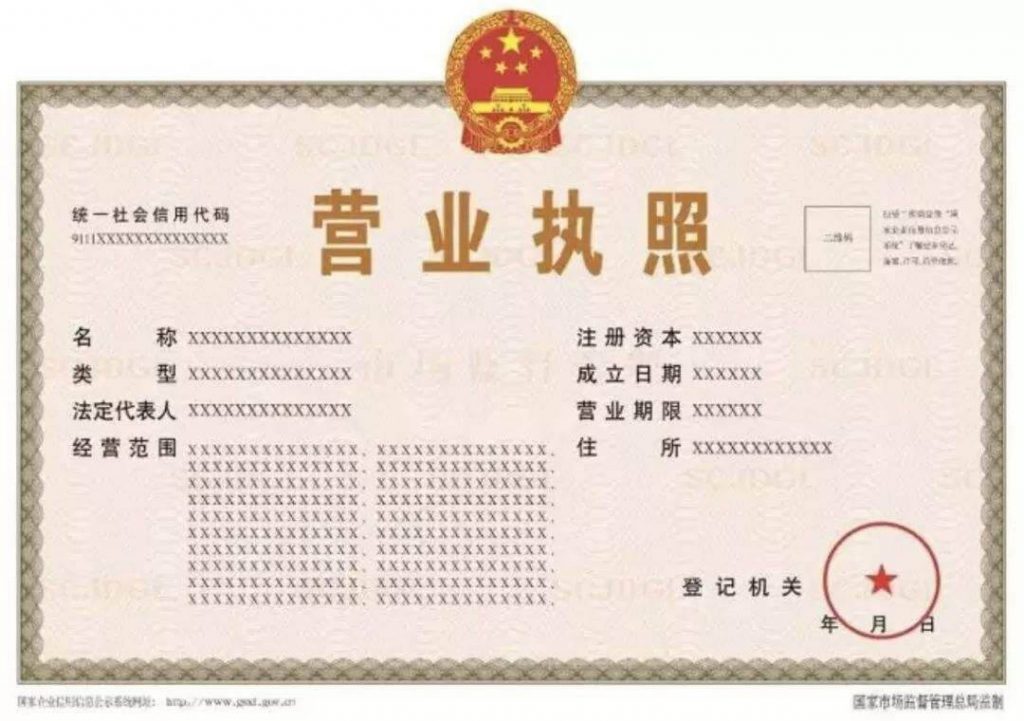
If the company does not have a business license, or an official seal, or cannot be retrieved in China’s National Enterprise Credit Information Publicity System, then it is definitely a fake company.
This post was first published in CJO GLOBAL, which is committed to providing consulting services in China-related cross-border trade risk management and debt collection.
So, the next question is how can one verify a Chinese company?
Only three steps to follow.
You need the business license and official seal of this Chinese company and check its current status on the Chinese government website.
Step 1 -You need the business license of this company
Every legally registered Chinese company will have a business license issued by the Chinese company registration authority, and the administration for market regulation.
If the company cannot show its business license, it is definitely not a legit company.
Depending on the company size, the business license may be issued by a local administration of market regulation or by the State Administration of Market Regulation (SAMR).
The information on the business license includes the company’s legal name in Chinese, unified social credit number (just as the company’s ID number), registered capital, company type, legal representative, date of incorporation, expiration date, and business scope. On the bottom right corner, there is a red stamp of the company registration authority.

Step 2 – You need the official seal of this company
In China, the official company seal is a symbol of corporate power. Anything stamped with the official company seal is considered to be on behalf of the company’s will.
The person who has the right to use the official company seal is the actual controller of the company. If the person who negotiates with you on behalf of a Chinese company can’t get the controller of the company to stamp the contract with the official company seal, then he/she is highly unlikely to represent the company.
In China, it is very unlikely to happen. Because, in China, making official company seals is under supervision by the police. It would be a crime for anyone to make the company seals without authorization, and in the most serious cases, he/she could be sentenced to 10 years in prison.
A quick way for the person you communicate with to prove that he can represent this company and that this company really exists, is to ask him to stamp the company’s official seal on the documents you provide.
Step 3 – You need to check its current status on the Chinese government website
The business license only shows that this company once existed and cannot prove the current status of the company.
So, you also need to check the current status of the company in China’s National Enterprise Credit Information Publicity System at http://www.gsxt.gov.cn/index.html, a website of the SAMR.
For more information on how to use this system, you can read our article “How Do I Know If a Chinese Company Exists Legally?”.
If you find the status of a Chinese company is existing on this website, it is legitimate.
Except for existing, all others are abnormal operating status. You should try to avoid doing business with companies in abnormal operating status.
For more information on Chinese company registration status, you can read our article “Which Status of a Chinese Company Is Legit? ”.
The Cross-border Trade Dispute 101 Series (‘CTD 101 Series’) provides an introduction to China-related cross-border trade dispute, and covers the knowledge essential to cross-border trade dispute resolution and debt collection.
* * *
Do you need support in cross-border trade and debt collection?
CJO Global's team can provide you with China-related cross-border trade risk management and debt collection services, including:
(1) Trade Dispute Resolution
(2) Debt Collection
(3) Judgments and Awards Collection
(4) Anti-Counterfeiting & IP Protection
(5) Company Verification and Due Diligence
(6) Trade Contract Drafting and Review
If you need our services, or if you wish to share your story, you can contact our Client Manager Susan Li (susan.li@yuanddu.com).
If you want to know more about CJO Global, please click here.
If you want to know more about CJO Global services, please click here.
If you wish to read more CJO Global posts, please click here.
Photo by Shengpengpeng Cai on Unsplash
Contributors: Meng Yu 余萌









